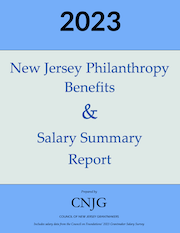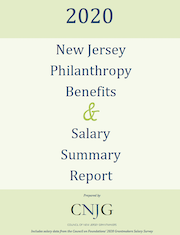Site Search
- resource provided by the Forum Network Knowledgebase.
Search Tip: Search with " " to find exact matches.
Nonprofits can and should play an active role during elections, particularly by educating and activating voters. However, with important local, state and federal elections coming up this fall, nonprofits should take the time to remind their staff about appropriate activity during a political campaign or at any other time. This overview developed by Donors Forum provides important tips and examples of activities that are permissible for nonprofits during an election cycle.
As a follow-up to our Giving in Indiana study (released earlier this year), Indiana Philanthropy Alliance is pleased to share this snapshot of promising practices for advancing diversity, equity and inclusion in Indiana philanthropy. Throughout our state, foundations are incorporating the values of diversity, equity and inclusion (DEI) into their organizational cultures; engaging diverse populations as staff, board members, donors, and grantees; and working to make their communities more welcoming places. This report is an effort to capture a sampling of these endeavors.
Alexis Bivens, Vice President of Strategic Initiatives and Managing Director of the Supporting Organizing Work Funders Collaborative, Connecticut Council on Philanthropy, presents the process and progress of how an affinity group transformed into a funders collaborative, how it was resourced, and challenges along the way.
With a resounding endorsement, The Westfield Foundation recently voted in three new board members: Toni Janota, Michael Moye and Dr. Cheryl Lundy Swift, all of Westfield. At the same time, the organization recognized the service of outgoing members: Tim Boyle, Stan Gersch and Rich Elbert.
“We express our deepest appreciation for the invaluable contributions of Tim Stan and Rich and their unwavering commitment during their tenure!" said outgoing president Larry Darrow.
Our new board members had the privilege of witnessing our Q2 grants meeting in early May where we funded over $100,000 to community programs. Some notable grants this quarter: providing a new mode of transportation for the Westfield Community Center, renovation funds for The Our House Foundation’s New Providence Day Program site, and continued support for the Presbyterian Church of Westfield’s mission to supplement local in-need families with nutrient-dense food.
The Tepper Foundation in Short Hills, New Jersey, has announced an $8.75 million commitment to Jewish Federations of North America in support of interfaith bridge-building and on-site security for Jewish early childhood, day camp, and afterschool programs.
Awarded through the foundation’s Security Fund, the funding will support more than 100 federations across 39 U.S. states and Canada. The grants will bolster increased security personnel and augment efforts to strengthen local community relations and vital interfaith and intergroup projects. The most recent gift brings the Security Fund’s total commitment to Jewish Federations to nearly $18 million across 2024-25.
“The Security Fund is continuing to provide a critical service for Jewish spaces across the United States, and the Jewish Federations play a key role in helping more families feel safe,” said Tepper Foundation CEO Randi Tepper. “While most Jewish organizations have existing funds dedicated to security, many institutions have had to pull money from other budget lines to meet increased security needs. We want to ensure these organizations can not only provide security but continue their missions serving local families.”

Narratives shape policy, sway elections, and determine whose voices are heard or silenced. Media is not just a communication tool: it is civic infrastructure, as essential to democracy as roads and schools. Yet the systems that shape our shared understanding are collapsing, consolidating, or being strategically captured.
This four part Media Learning Series designed in partnership with Independence Public Media Foundation is for funders who recognize that the fight for justice, equity, and democracy is also a fight over the stories we tell, and who gets to tell them. Through four dynamic sessions, we’ll explore how media and narrative power underpin every funder’s work, regardless of sector. Participants will move from conceptual understanding to actionable strategies for funding community-driven media and narrative ecosystems that can endure and adapt over time.
Across the series, you will:
Understand how today’s media systems shape public imagination, democracy, and movement building and why current funding approaches often fall short.
See how community led narrative work fuels organizing, shifts policy, and builds long-term power.
Learn how to assess and invest in the media and information needs of the communities you serve.
Leave with concrete steps, peer connections, and tools to begin or deepen your media funding practice.
SESSION LISTINGS:
Session 1 – Wednesday, 10/8, 12-1 PM via Zoom
Who Tells the Story?: Media, Power, and Philanthropy’s Role in Shaping the Narrative
Session 2 – Wednesday, 10/22, 12-1 PM via Zoom
How Narrative Fuels Organizing, Movement-Building, and Policy Change
Session 3 – Wednesday, 11/5, 12-1 PM via Zoom
Building Community Information Power from the Ground Up
Session 4 – Wednesday, 11/19, 12-2 PM In-person (location TBD)
Taking Action, Learning, and Adjusting: Building a Media Funding Practice that Lasts
We encourage you to attend the entire series, as each series will build on the last. However, we welcome you however you can show up. Recordings and resources will be available after each meeting. The stakes are high and the moment to act is now. Funders who engage today can help ensure that tomorrow’s media landscape reflects the full diversity, truth, and resilience of our communities.
Presented by Philanthropy Network Greater Philadelphia

